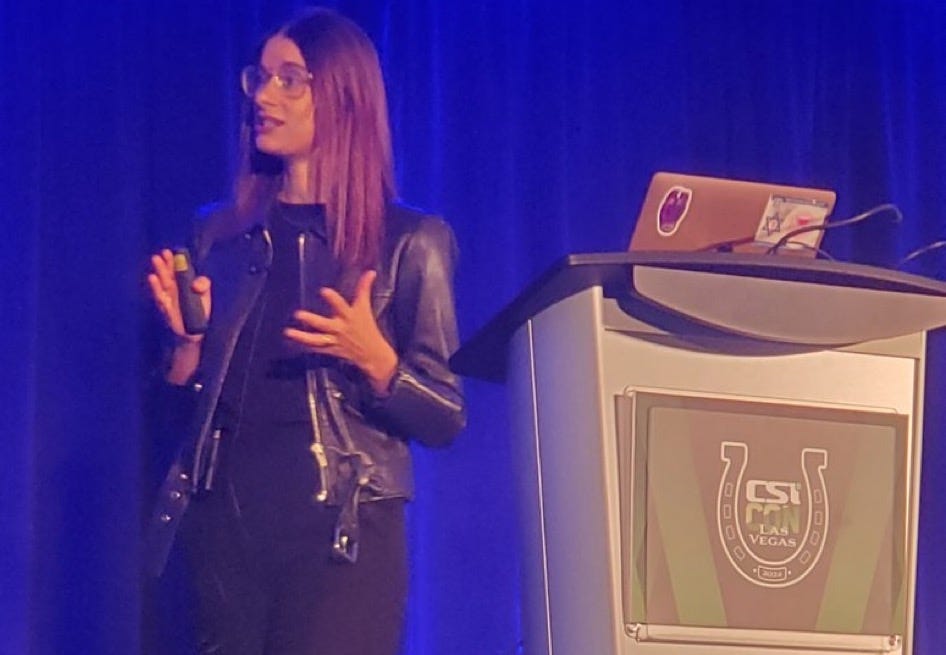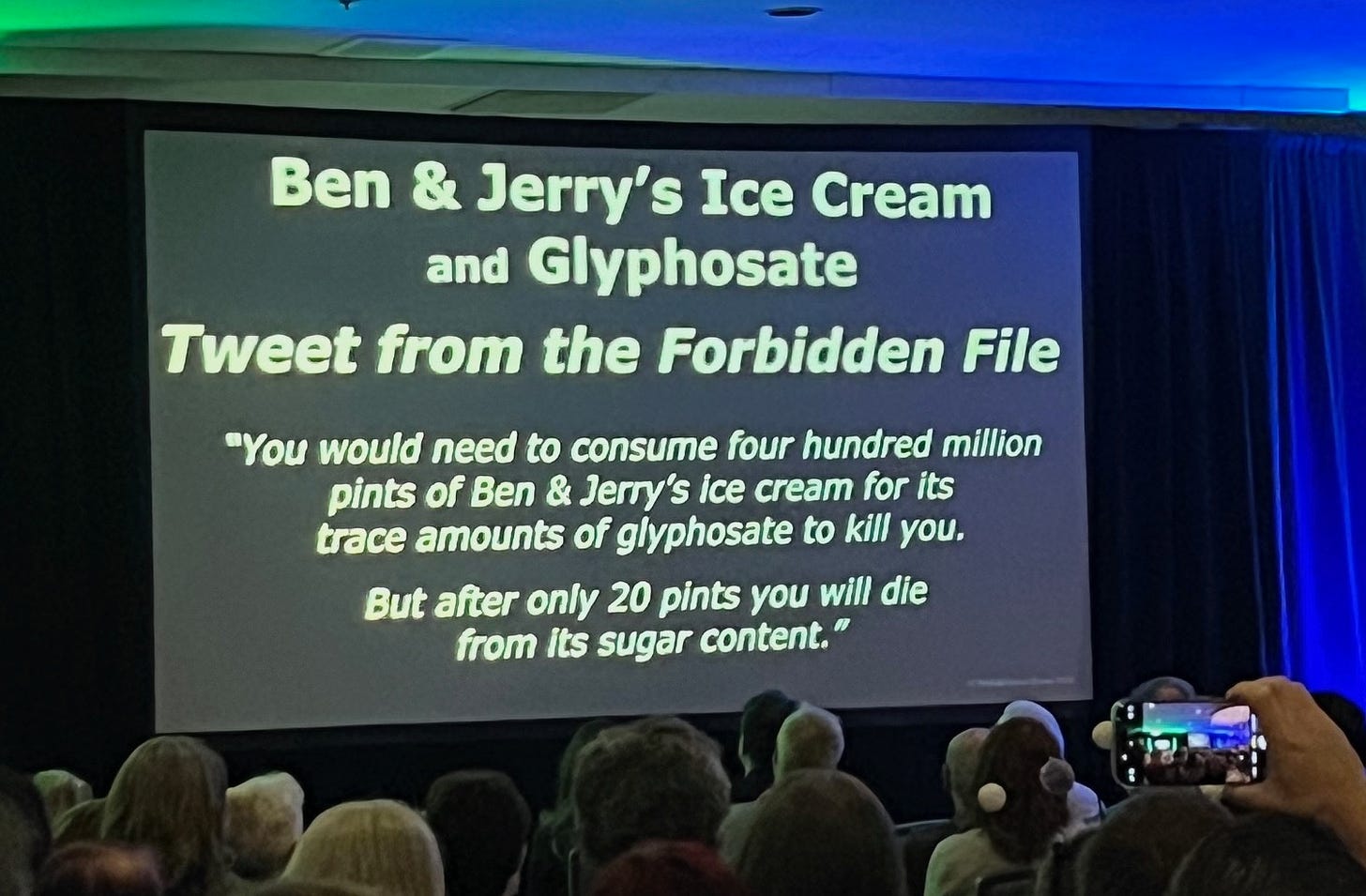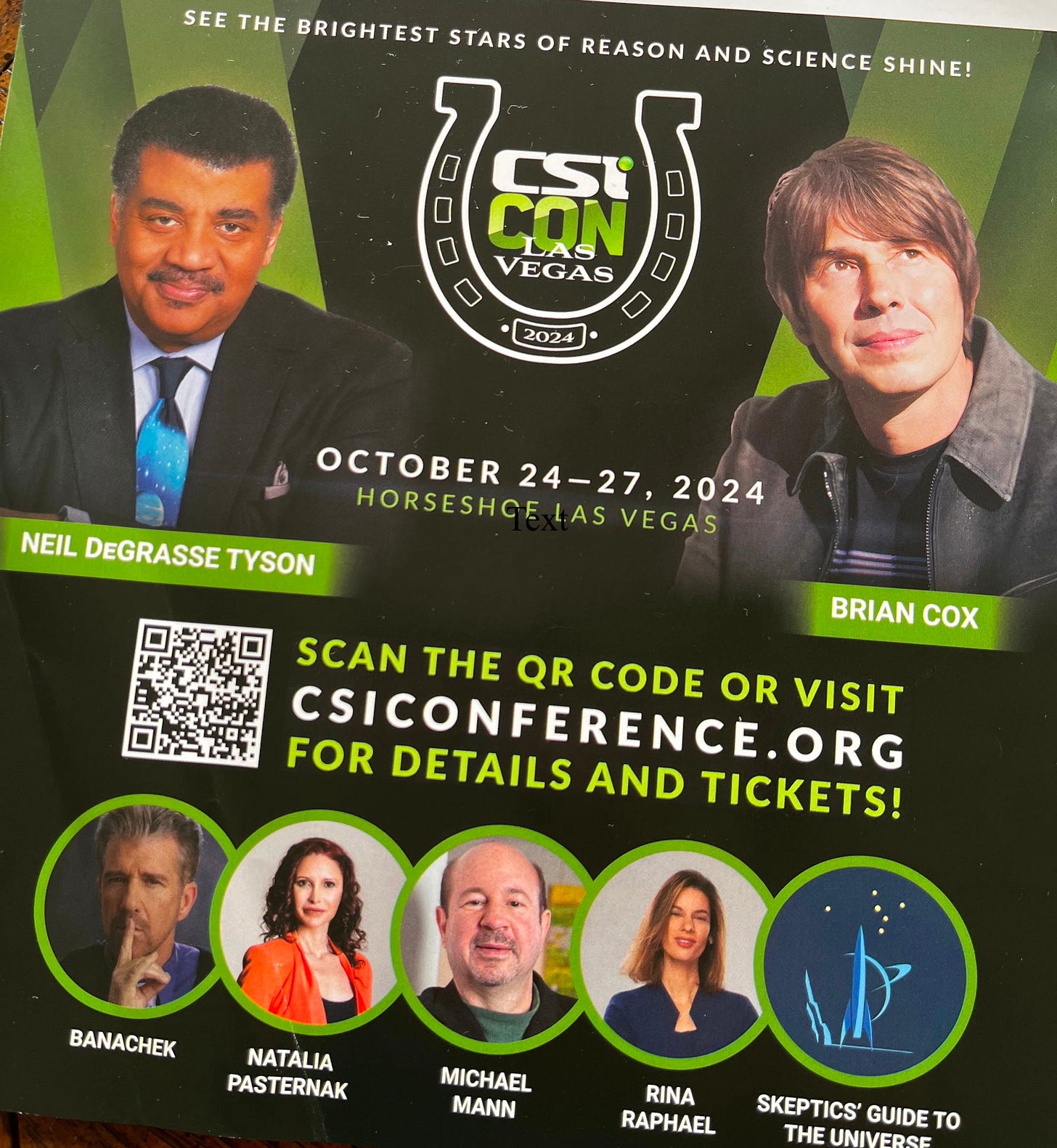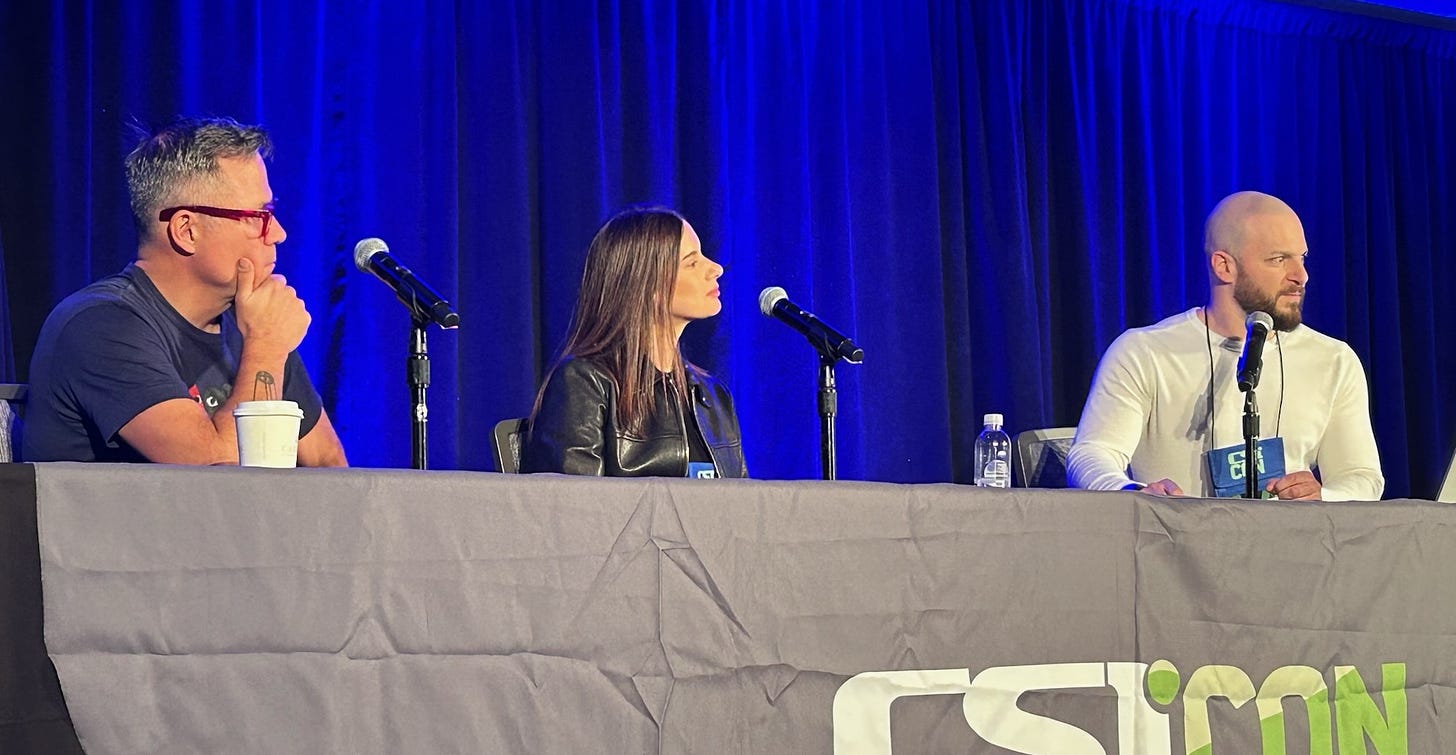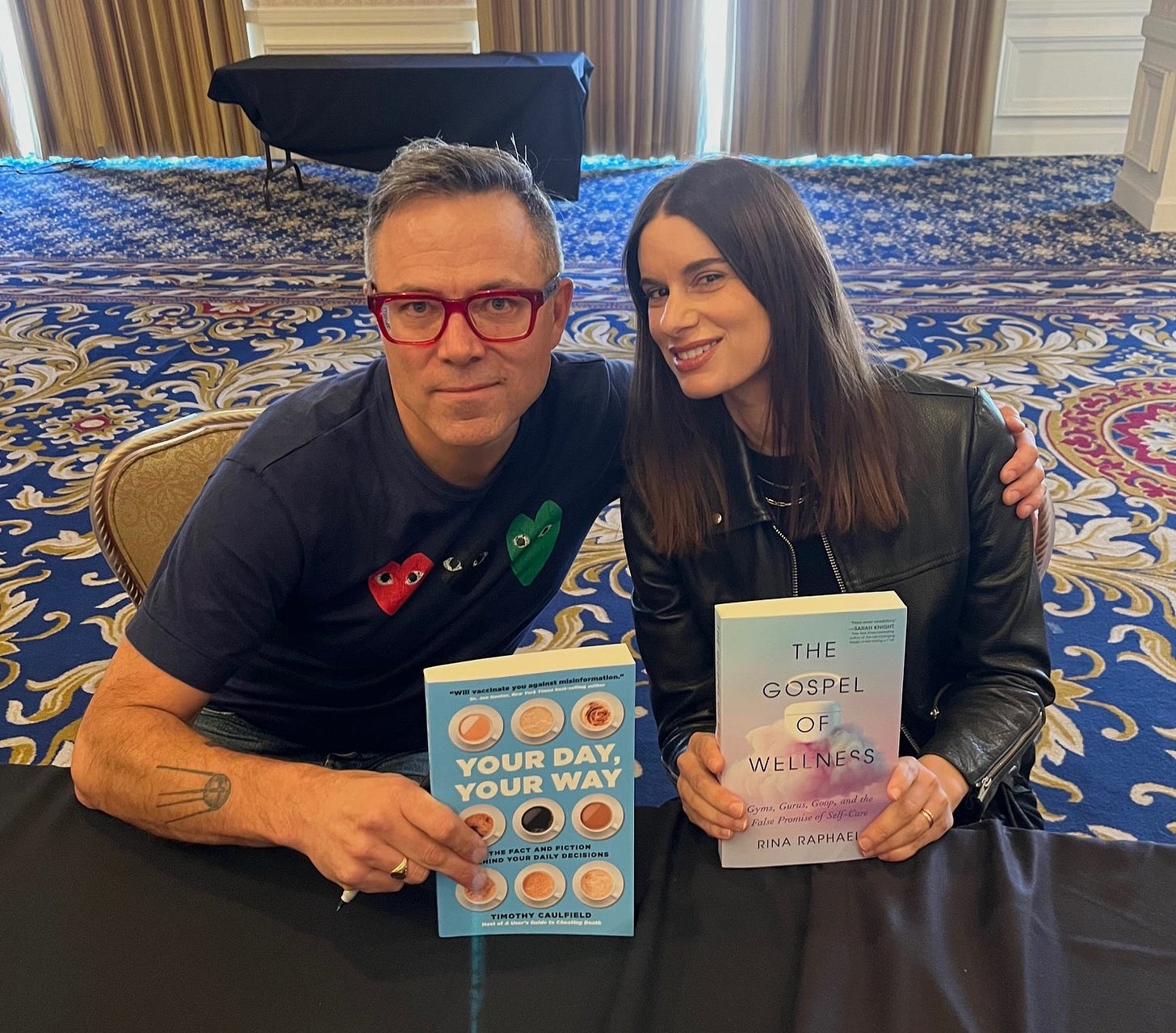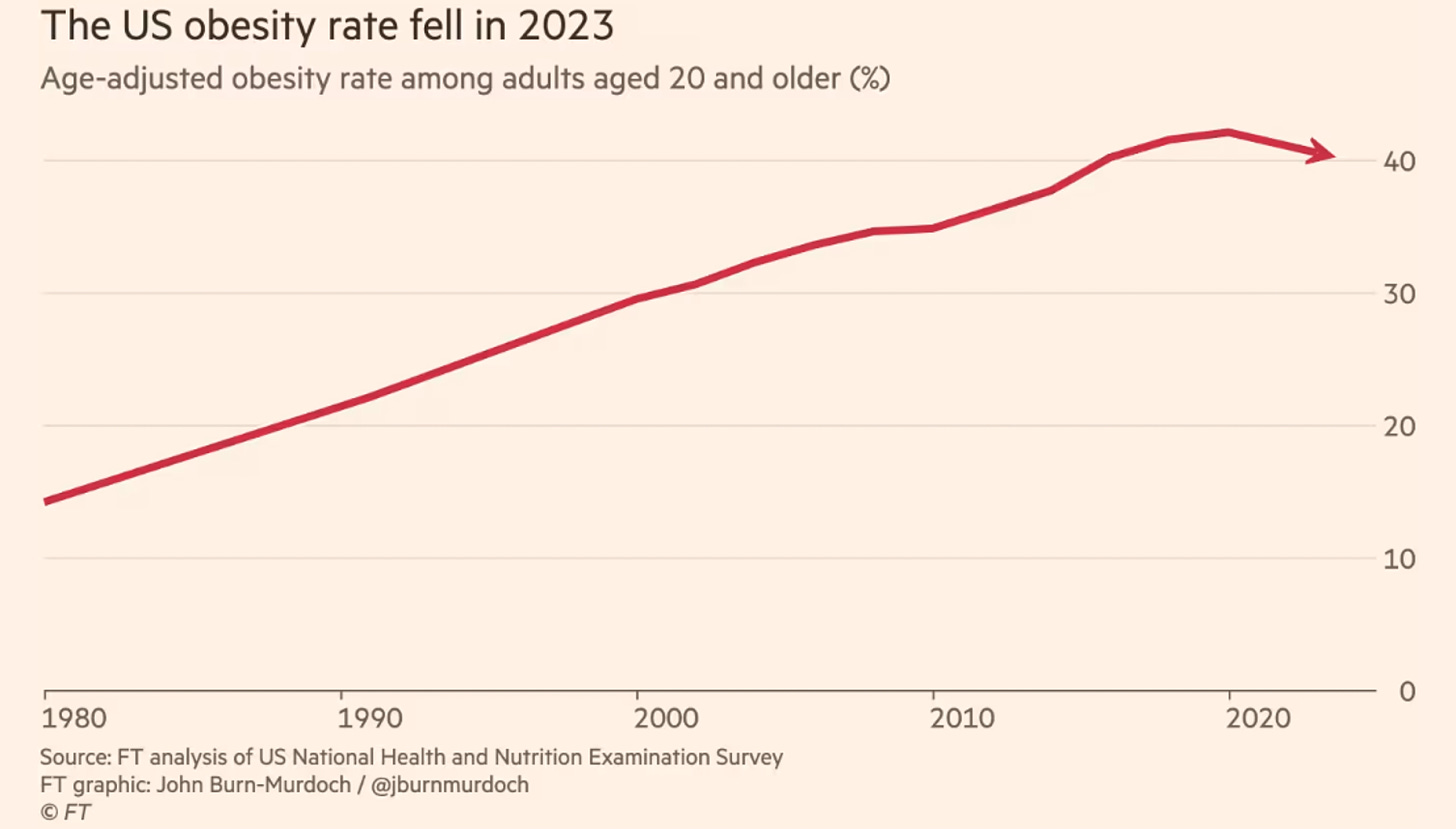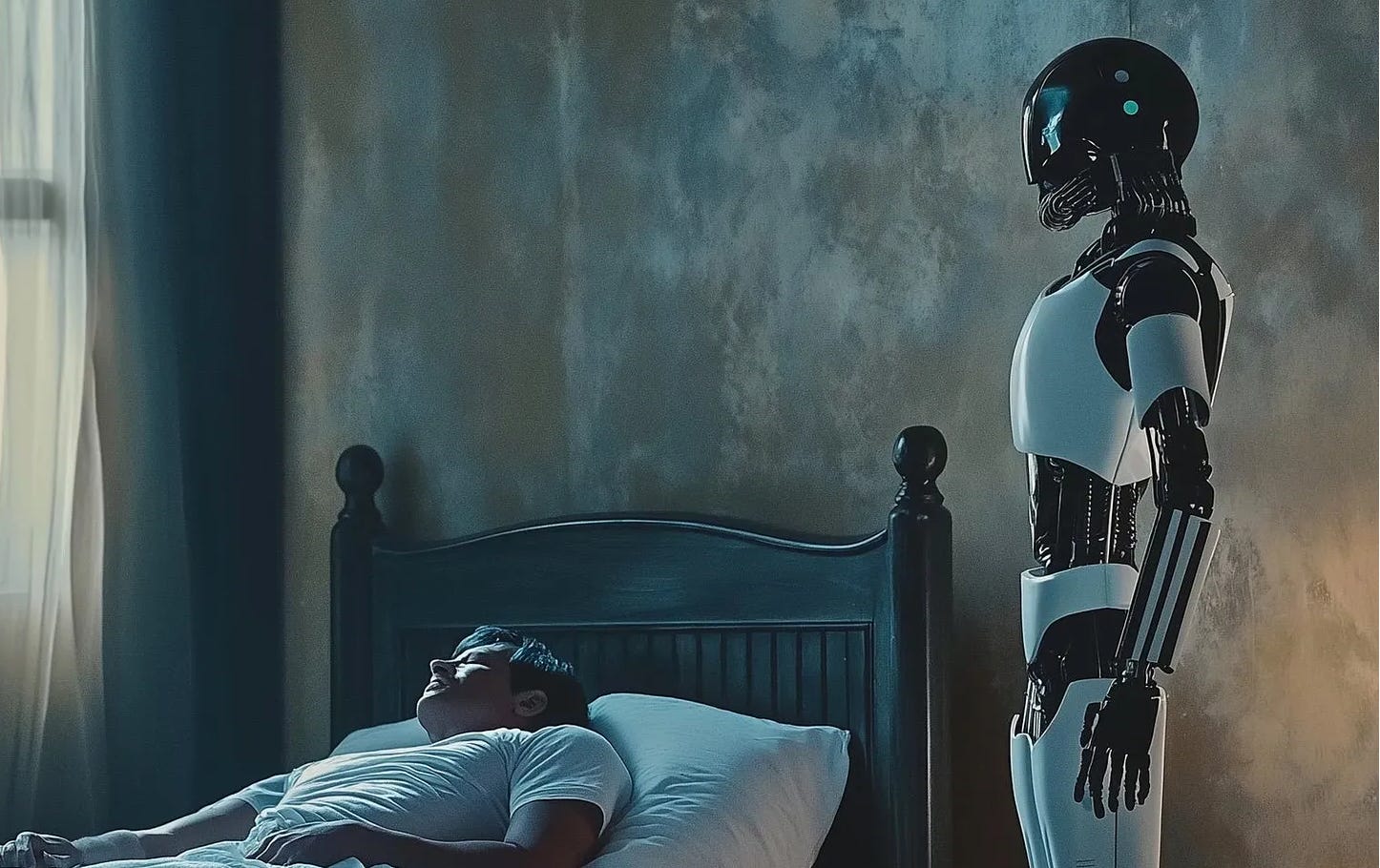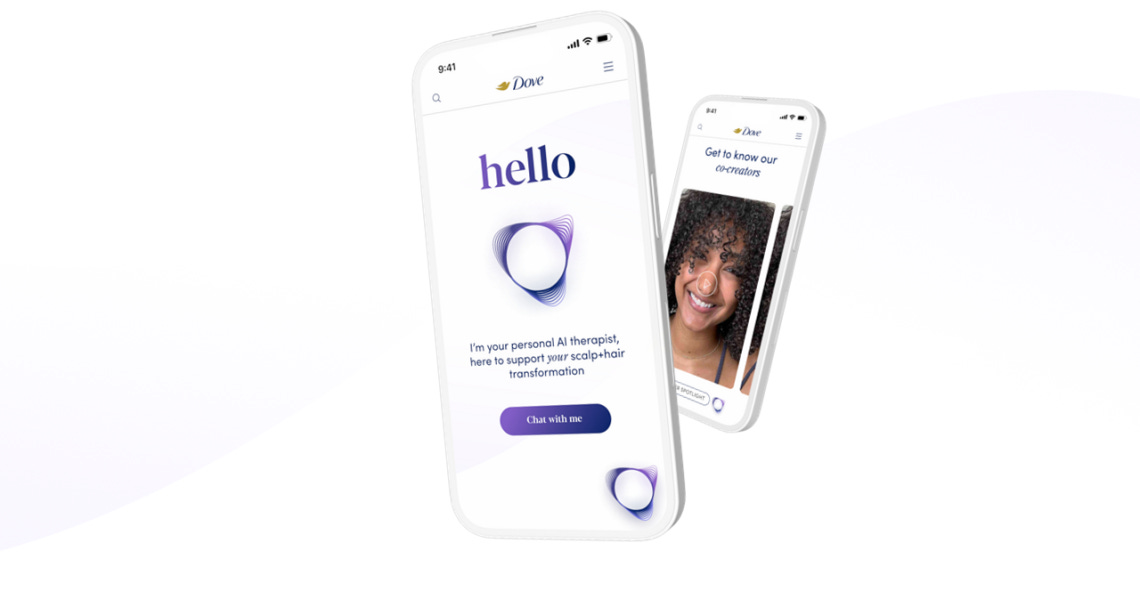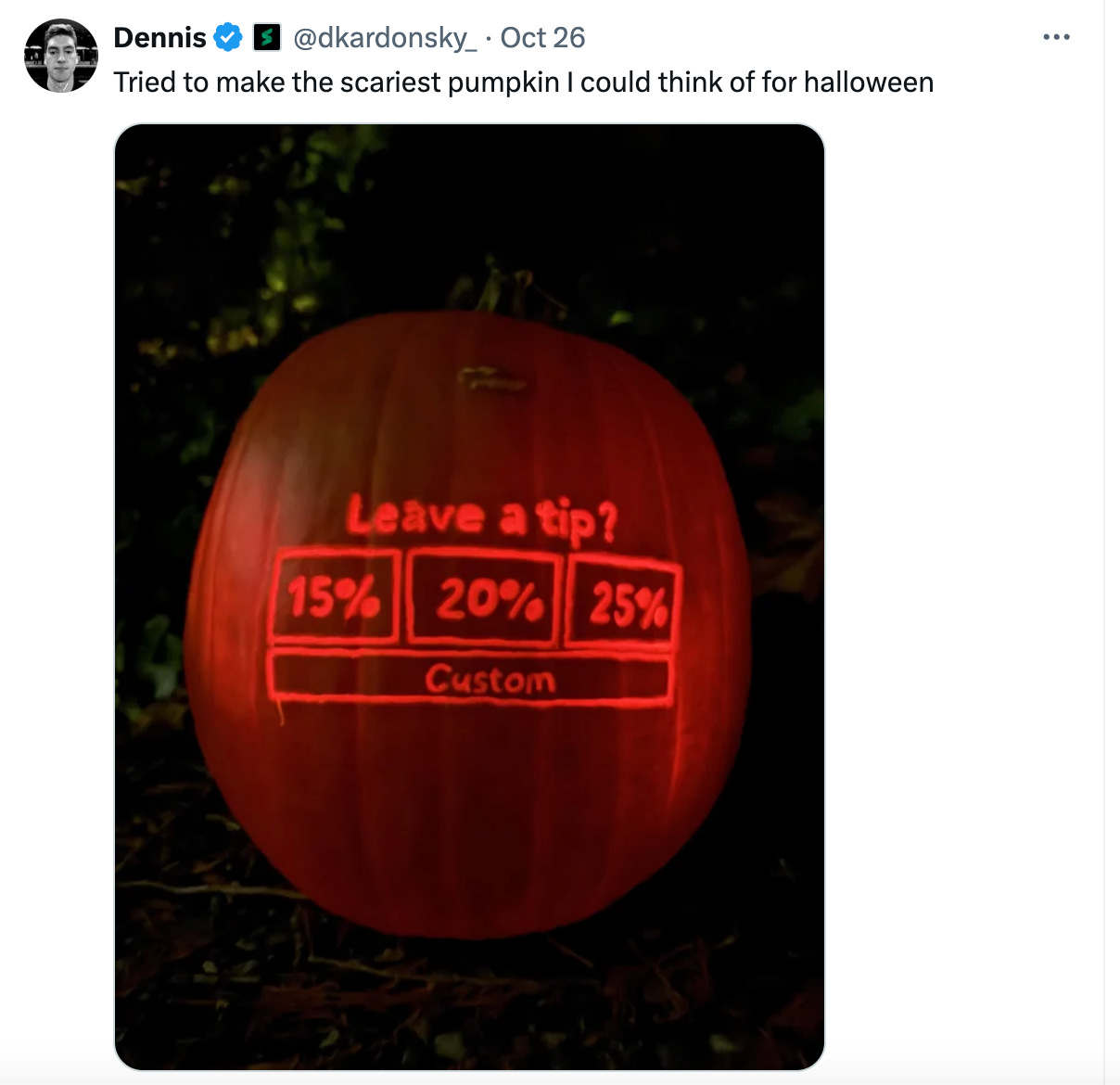A recap from the road!
I recap CSICon and QED. Plus: latest bizarre beauty trend, sneaker market, women's health research news, dystopian robots, and more.
I just returned from two speaking engagements and am still catching up!
I spoke at CSICon, the premiere U.S. conference for science and skepticism, where I presented alongside folks such as Neil deGrasse Tyson, Brian Cox (!!!), , and more. I spoke about the state of health journalism and why you should be a bit (or maybe a lot) more skeptical when reading headlines.
Neil deGrasse Tyson gave a fantastic talk spanning the cosmos, E.T., vegetarianism, social justice, and nutrition myths. He also shared some chosen never-sent tweets. Here’s his helpful dessert tip:
This is likely the only time I will appear in marketing materials with Neil deGrasse Tyson so I’m taking the opportunity to revel in it. Forgive me. This is my apex of cool (it’s all downhill from here).
I also did a panel on longevity science and hype with exercise scientist Nick Tiller and misinformation expert Timothy Caulfield. As I’ve previously written about, longevity is yet another term increasingly divorced from its scientific meaning to serve bogus product sales, and the sector is now struggling with polarizing figures and pseudoscientific clinics.
Timothy Caulfield and I did a book signing together! We do similar work: Caulfield has a new documentary about the perils of the manosphere and how masculinity is being twisted and weaponized within the male wellness world.
Watch Harder, Better, Faster, Stronger, in which Caulfield is forced to go on a ball-slapping expedition, watch men drink their own urine, and debunk eating raw testicles. (Truly nuttier than anything I ever endured at a GOOP summit.)
If you wonder whether your favorite scientists and misinformation experts hang out together, they do! They eat at Momofuku.
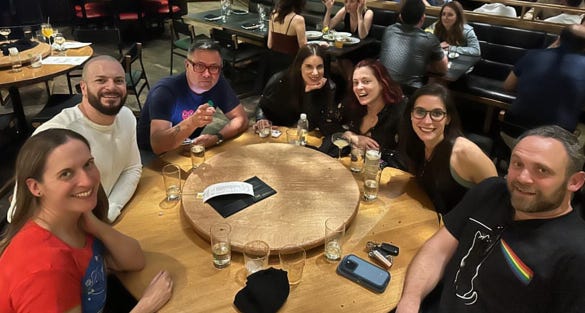
Special guest star at dinner: actress and comedian Rachel Bloom, who has a new Netflix special, Death Let Me Do My Show, which is about grief, being a skeptic, and questioning popular concepts like doggie heaven.
Meanwhile, at the QED festival of critical thinking in Manchester, UK, I spoke about the wellness industry and did a panel on investigative journalism. I also met some of the UK's finest scientists and skeptics, including Dr. Idz, who I interviewed for this NYT piece on TikTok creators debunking health myths!
Glad to be home. Delighted to be reunited with my bed. More to come!
—Rina Raphael
News & Trends:
Why is the obesity rate falling? It may not be what you think. This chart made several headlines, with some pundits claiming it was due to GLP-1s. But nutrition expert Marion Nestle notes that when you dig into the data, the decline is not nearly so impressive (and severe obesity is increasing slightly). Also, the downward trend occurred before the drugs were widely used. (Food Politics)
Vaginal seeding: More parents are requesting the intervention, but does the evidence support it? And is this another case of microbiome hype having real-world consequences? (Link)
Related: My Bloomberg Businessweek investigation on industry-wide microbiome hype
Dystopian nannies: Tesla’s latest innovation, a home robot, aims to “redefine sleep tracking” by way of an AI-equipped home companion. “Imagine a robot that not only watches over you as you sleep, monitoring your breathing, heart rate, and sleep patterns, but also acts as a vigilant guard against intrusions.” (Link)
TikTokers are eating carrots … for a tan: Time to debunk the latest beauty trend. (The Skeptic)
Gen Z is excited about wellness AI: Gen Z sees the acceleration of technology as a positive thing, and 27% want to see innovation specifically surrounding health and wellness. (Beautymatter)
Unilever’s investments in consumer-facing AI tools are reportedly paying off: Unilever’s AI beauty/wellness tools include Dove’s virtual Scalp and Hair Therapist, which addresses a wide range of scalp and hair care concerns like dryness and itchiness. (Glossy)
Oura releases perimenopause report: Oura–once again–proves it takes women’s health seriously. Findings of 100,000 female Oura members in the late perimenopausal age range found that 33% were more likely to tag anger, 28% more likely to tag sadness, and 44% more likely to tag migraine than premenopausal women. (Pulse blog via LinkedIn)
Pinterest has become one of the most popular platforms among Gen Z: If they’re not on TikTok, they’re pinning their fave beauty and wellness brands. Gen Z is Pinterest’s fastest-growing audience, making up more than 40% of global monthly users. (Glossy)
Amp is the at-home fitness gym of the season: Every year brings a new hot at-home workout brand, and this time it’s this $1,795 AI-driven home gym beloved by actor Terry Crews. It ships in early 2025. (Atheletech)
The post-hype sneaker market: What’s new for the rapidly shifting footwear market? A blend of performance, lifestyle, and high fashion driven by cutting-edge tech and new cultural forces. (LSN)
The FemAging Project: A global initiative to accelerate women’s health innovation (with partners like AARP) has launched Femalytics, a unique membership and intelligence platform. (WoW)
More than two-thirds of women fear returning to work in VC after maternity leave: Women in venture capital don’t feel like they’ll be supported, according to a new report. (Sifted)
Women’s health award recipients: First Lady Jill Biden announced that 23 organizations will receive a slice of $110m in funding for the Sprint for Women’s Health. This includes biotech company Celmatix, which is researching therapeutics aimed at controlling timing and rate of decline in ovarian function that occurs during perimenopause and menopause. I wrote about Celmatix and interviewed its founder last year. (FutureFemHealth)
Previously: These Founders Were Sick of Being Told They Weren't Sick—And Now Their Work Is Driving Real Progress in Women’s Health
Breast milk skincare making the parenting scene rounds: Social media is running out of ideas if summer videos of breast milk skincare routines start going viral. (Link)
RFK Jr.’s “Make America Healthy Again” brings wellness influencers to the MAGA crowd: “Don’t you want a president who’s going to make America healthy again?” (Mother Jones)
Deeper Dives:
Tripping on Nothing
Scientists have reportedly created trip-free psychedelic analogues that can treat a number of ailments, including depression, pain, and PTSD. And last month, the biotech company Bright Minds Biosciences announced that its new compound, which interacts with the same serotonin receptors as psilocybin and LSD but doesn’t cause hallucinations, had a “similar efficacy” to morphine at reducing pain. “Non-hallucinogenic, consciousness-altering experiences, like those reported to result from tabernanthalog use, sound far away from such mystical experiences, and more akin to how some people might feel after drinking a glass of wine or a strong cup of coffee,” writes Shayla Love. (The Atlantic)
Scaring Women About Hormones Makes Copy
How did our top outlets handle a recent study about the risks of hormonal contraception? Not very well, according to Dr. Jen Gunter. Once again, fear-mongering headlines about levonorgestrel IUD exaggerated risk and misrepresented the study’s findings. Dr. Gunter pinpoints what the press got wrong and breaks down the science, noting, “There are a few issues with the study. This doesn’t make it good or bad, it’s just important to understand.” (Vajenda)


